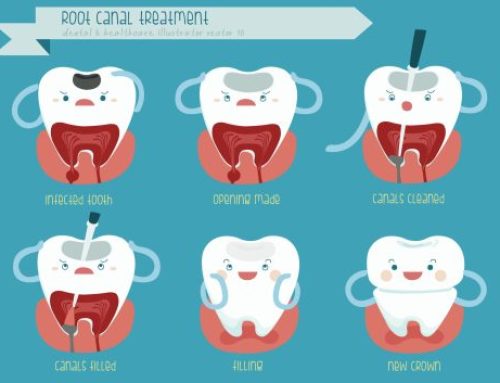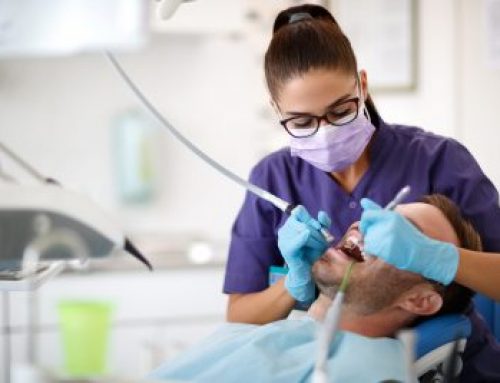All You Need To Know About Root Canal Aftercare
 It’s highly important that you stick and adhere to the proper procedures for root canal aftercare to experience the best possible results. Continue your reading and get to know more about root canal aftercare.
It’s highly important that you stick and adhere to the proper procedures for root canal aftercare to experience the best possible results. Continue your reading and get to know more about root canal aftercare.
Root canals will always be painful. Even with adequate anesthesia during the treatment, you’ll inevitably experience lots of pain afterward. And this makes proper aftercare a key part of pain management as well as infection prevention.
So, what should you expect during a root canal?
If you are contemplating going for a root canal, a number of questions are likely to criss-cross through your mind. Is this procedure painful? What amount of time does the procedure take? What does the recovery time look like?
Despite the popular belief that a root canal is a painful procedure, the truth is, however, is that it’s usually a straightforward process. It is commonly done on the teeth that have extensive decay inside the pulp. By effectively eliminating the decay, a tooth can safely be rejuvenated.
It’s worth noting that your teeth feature several different components rather than just a single piece of hard bone. Often called enamel, the outermost layer is arguably the hardest substance within your body.
The enamel is filled with lots of blood vessels, nerves, as well as connective tissue, referred to as the pulp. And it’s this pulp that makes your teeth thrive and function optimally. However, if it faces any problems, you’ll inevitably experience tooth pain. When your tooth’s pulp suffers any form of damage, you’ll experience a tooth infection. And if you have ever undergone this, you are quite familiar with the type of them it can cause.
A root canal is a dental operation that eliminates the pulp from your tooth before it is sealed. As earlier explained, it’s usually a somewhat pain-free procedure because it involves the application of local anesthesia. It’s also a short procedure that only takes less than thirty minutes.
And if you are skeptical about the whole process, you can boost your confidence by reading about the previous people who have undergone the procedure before at the dental clinic you intend to have yours. Most experienced, qualified, and reputable dentists usually have a few testimonials on their official websites.
Root canal aftercare tips:
Despite being one of the most important parts of your body, your mouth can be highly susceptible to infections. Most bacteria and pathogens that enter your body will use your mouth as the main pathway. And this often happens when you are eating or drinking.
Root canal often results in mild pain and discomfort, and these symptoms will most certainly disappear within a few hours. To help minimize any pain or discomforts, your dentist may prescribe NSAIDs for you, such as ibuprofen. The procedure may also lead to some inflammation, it’s not just about managing the pain and discomfort, but the potential swelling as well. And this is why it’s imperative that you take your NSAIDS as prescribed.
Usually, aftercare is divided into three distinct phases, including immediately after the procedure, over a few days, and in the future. Below is a description of what you can expect:
Immediately after your procedure:
After the procedure, your mouth will likely stay numb for a few hours. It’s highly recommended that you don’t eat anything that requires chewing or any hot food or drink. If you do this, you only run the risk of burning your mouth, but you might bite too hard on your tooth as well. If by this time you’ll be done with your prescription, then it’s the perfect time to take your painkillers. The pain, as well as discomfort, should diminish after a couple of days.
The next few days:
In the next few days that follow, you’ll have to adhere to the following measures:
- Continue to honor your medication as prescribed.
- Brush your teeth with extreme care.
- Chew your food on the side of your jaw that didn’t undergo the procedure.
Your pain will most likely subside after a couple of days. In severe cases, you may need to visit your dentist a few more times for the infected pulp to be entirely removed.
The future:
Even if your root canal procedure goes smoothly and doesn’t result in any problems, always honor your future dental appointments. On most occasions, the filling used in a root canal is not for permanent usage, implying that you’ll inevitably require a dental crown at some time.
This is because of the damage caused to the tooth during a root canal. The chances are always high that a tooth, particularly if it’s extensively infected during the procedure, will require at least two cleaning sessions and that the tooth underwent serious damage during the operation.
Any potential complications?
Just like any other dental operation, the likelihood of a complication after a root canal is always there. These may include infections, your tooth cracking, or the failure of the procedure to wholly remove the pulp, especially if you fail to adhere to the proper aftercare measures. It’s highly recommended that you should contact your dentist if you experience intense pain after the first few days.
It’s pretty normal to feel stressed, or anxious prior to your root canal. However, it shouldn’t be more than that! Thanks to the advancements in the dentistry arena, a root canal is fairly painless, causing only mild pain and discomfort for a couple of days. What’s more, root canal aftercare is equally simple but quite effective!
If you are looking for a dentist, HPS Advanced Dental Care would love to see you. Dr. Heather is gladly accepting new patients.
We are located at 4741 24 Mile Rd. Shelby Township, MI 48316, and we can be reached at (248) 652-0024. We look forward to meeting you!




